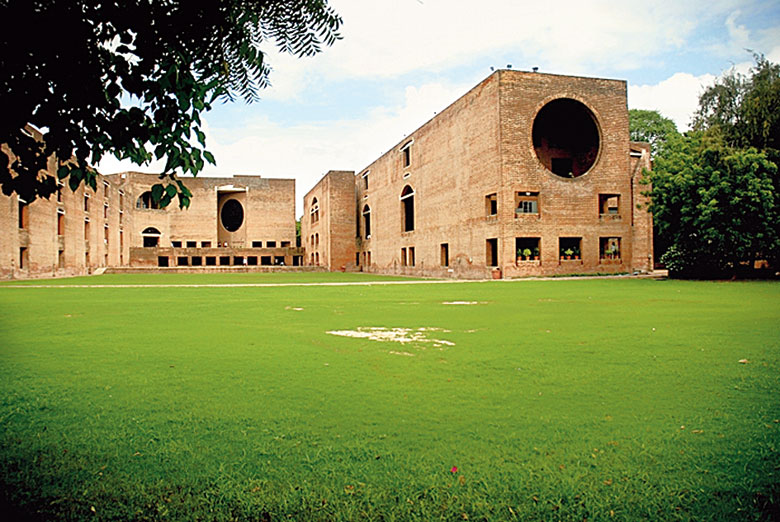The Indian Institute of Management, Ahmedabad, has invited applications from prospective researchers for its doctoral programme but the advertisement has no provision for reservation of seats for candidates from socially disadvantaged sections, triggering criticism that it was blatantly violating a central law.
The Central Educational Institutions (Reservation in Admission) Act provides for setting aside 49.5 per cent of seats in institutes of higher learning — 15 per cent for Scheduled Castes, 7.5 per cent for Scheduled Tribes and 27 per cent for the Other Backward Classes.
Sources in the Ahmedabad B-school said every other IIM had introduced reservation in admission to PhD programmes from this year.
Till last year, most of the 20 IIMs had no seats reserved for PhD candidates from the socially weaker sections. Even now, none of the IIMs has introduced any system of reservation for hiring teachers.
The advertisement that IIM Ahmedabad issued this week says: “The PhD Programme of IIMA admits students who have a strong academic background, are highly motivated and who have the intellectual curiosity to undertake original research.”
P.S. Krishnan, a retired civil servant and an expert on issues related to social justice, said IIMs were institutions created by the central government. “The law says all central government institutions have to implement reservation in admission and faculty recruitment. IIM Ahmedabad is blatantly violating the law.”
The Telegraph had on Tuesday sent an email to the IIM Ahmedabad director, Professor Errol D’Souza, to understand the institute’s perspective. An email was also sent to the HRD ministry to get its views on the violation of the government’s reservation policy. Neither D’Souza nor the ministry had responded till late on Wednesday.
Manoj Bhat, the B-school’s chief administrative officer, declined to comment.
Abhiman Das, chairperson of the doctoral programme, could not be reached despite several attempts.
Krishnan said the IIMs have at times pleaded that they don’t get qualified persons from among SC/ST and OBC groups but there were enough qualified candidates from among these socially deprived sections now.
“Dr (B.R.) Ambedkar was the first Indian to earn a PhD in economics from a foreign university. Opportunity must be provided to all,” Krishnan said.
So far, 349 doctoral students have graduated from IIM Ahmedabad since the B-school launched its Fellow Programme in Management (now renamed as PhD) in 1971.
Some faculty members have taken up the issue of reservation with the institute’s authorities and Professor D’Souza had held discussions earlier this year with a section of teachers.
An alumni network had moved Gujarat High Court against the non-implementation of the quota. The court has dismissed the PIL without passing any order to IIM Ahmedabad.
The court held that IIM Ahmedabad was an autonomous institute and did not depend on grants from the government. It also accepted the IIM’s argument that it conducted super-specialised courses.
Krishnan said leaders among academic institutions need to show the way. “Unfortunately in India, persons in key decision-making positions try to insert a spoke in the wheel of the reservation policy so that the goal of reservation, like social equality and due representation of all sections in education and jobs, is not achieved.” A human resource development ministry official said the IIMs have been avoiding implementation of reservation in hiring teachers by citing a 1975 letter that exempted technical institutions from enforcing quotas.
Krishnan said the letter had been issued then because there were not enough qualified persons from the socially marginalised sections, but that was not the case now.
Suraj Yengde, author of the book Caste Matters and a US-based Harvard academic, said the merit argument was aimed at denying opportunity to the socially deprived sections.
“The obsession of (the) upper caste(s) with so-called merit is deeply flawed. Merit is directly connected with diversity. People coming from diverse backgrounds give new perspective to any problem. Exclusion only promoted mediocrity,” he said.
“Imagine if you had interacted with only your parents all your life, you could not have become what you are today. You need people from diverse backgrounds for any organisation to grow,” he said.
Yengde also said Indian institutions had faculty largely from upper-caste Hindus. “Without diversity and anti-casteism at the centre of its goals these educational institutes have become intellectually impotent falling short of producing cutting-edge knowledge.”
On Wednesday, an IIM Bangalore faculty member and a former PhD student of the B-school wrote an open letter addressed to the IIM-A director.
Deepak Malghan, an associate professor, and Siddharth Joshi, a fellow of IIM Bangalore, in their letter requested Professor D’Souza to introduce reservation in PhD admissions at the Ahmedabad institute.










